It is no surprise that Raw Foodism has taken the health field by storm over the past few years. With an increased focus on society’s over-processed, animal fat, and chemical laden diet, the Raw Food Movement seems like a suitable alternative for many.
Raw Foodism is defined as “a lifestyle promoting the consumption of un-cooked, un-processed, and often organic foods as a large percentage of the diet. If 75-100% of a person’s total food consumption is raw food, he/she is considered a raw foodist or living foodist” (Source). Generally, raw foodists do not heat their food above 118F (although this temperature is widely debated). The motivation for eating a raw food diet often comes from the belief that cooking food destroys beneficial vitamins, minerals, and enzymes.
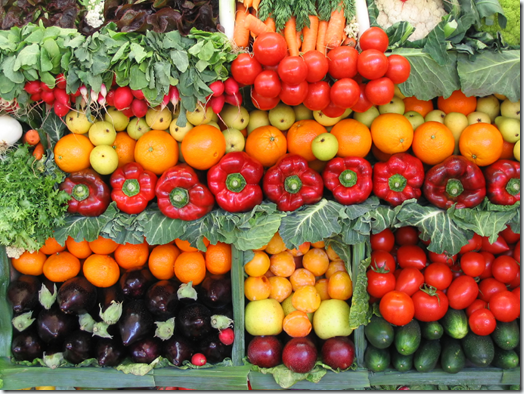
It may seem like Raw Foodism is a new thing, and yes while it does seem trendy, it has actually been around for a long time. Back in the 1900’s, Ann Wigmore and Herbert Shelton claimed that a raw diet composed of fruits and vegetables was the best diet that humans could eat (Source). In 1984, Leslie Kenton’s book called Raw Energy-Eat Your Way to Radiant Health advocated a diet based on 75% raw foods, like sprouts, seeds, and fresh vegetable juice.
In recent years, celebrities like Uma Thurman, Mel Gibson, and Demi Moore have promoted raw foodism and helped to make it a common household name.
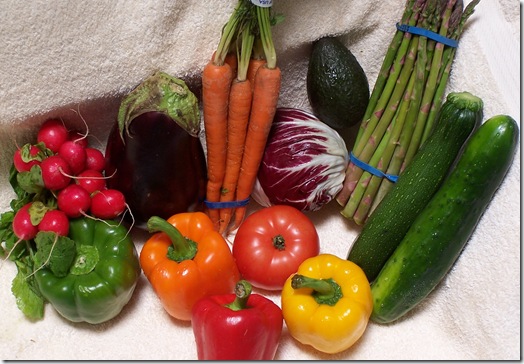
We have all heard about the research on various vegetables that are cooked superstars. For example, lycopene found in tomatoes has been shown to increase by 171% when heated at 190F for 15 minutes (source), blowing its’ raw counterpart out of the water.
Leslie Beck, a Toronto-based dietitian at the Medcan Clinic and regular feature on Canada AM, recently outlined the latest research on nutrients found in cooked and uncooked food.
She concluded that raw food is not always better.
Here are some of the interesting highlights of the article:
- Recent research shows that cooking food can actually increase the nutrients in foods
- Not all cooking types are created equal!
- Microwave cooking without water and only until tender maintained the highest antioxidant levels (Journal of Food Science, March 2009).
- Baking and grilling also preserved antioxidants
- Boiling and pressure cooking led to the greatest losses in nutrients
- All cooking methods increased antioxidants in carrots, celery and green beans (Journal of Food Science, March 2009)
- Cooking spinach and carrots produced higher levels of beta-carotene which is thought to prevent heart disease and lung cancer
- Lutein which guards against macular degeneration is also significantly higher when leafy greens are cooked
What about Minerals?
- Spinach, beat greens, and chard are all high in calcium. The problem? In their raw state, these green contain calcium binding oxalic acid which binds to calcium, preventing absorption. When these greens are cooked, the acid is broken down and more calcium is absorbed. This is why I often quickly steam my spinach before making a GM.
- 1 cup of uncooked spinach has 90 mg of calcium, whereas 1 cup of cooked spinach has about 260 mg!
What are the best cooking methods?
- Water is the enemy (leaches out vitamin C, folate and thiamin into the water. Beck suggests using the water to make a sauce!)
- Steaming, baking, and grilling are all suitable methods of cooking
- Boiling is the worst!
Leslie concludes that the following vegetables are best eaten raw because they contain high concentrations of glucosinolates, compounds that are converted to anti-cancer chemicals called isothiocyanates:
- Cabbage
- Bok Choy
- Broccoli
- Kale
- Cauliflower
- Turnip
Here are some of Leslie’s tips:
- Use gentle cooking methods such as grilling or steaming until vegetables are just crisp or tender! The less cooking the better
- Buy frozen veggies and fruits– they lock in more nutrients as compared to ‘out of season’ produce that has been transported across the country, losing many nutrients along the way.
- Prep vegetables just before consuming. When cut vegetables are exposed to light and air, they lose nutrients.
MY TAKE:
If you are now as confused as I am about the whole process, you aren’t alone! :D
It’s a bit overwhelming, isn’t it?
For myself, I think eating a mixture of cooked and noncooked foods works best for me. However, I know there are tons of people out there who swear by eating raw and that their energy and overall health has increased ten-fold. I think it is always best to do what works for YOU and how you will be happiest.
I also think there needs to be more research done on nutrients and cooking. I feel like there is so much to explore with this topic and so much that we still don’t know.
On the other hand, I think it is important to realize that we are never going to be able to eat the perfect diet!
Yes, many meals that I cook probably have vitamins and minerals leached out, but you know what?
That is ok!
Not everything I eat will provide me with the maximum amount of benefit. I think it is very easy to get caught up in this obsession with health, but sometimes it is important to step back and look at the big picture.
I will continue to enjoy researching about these topics because I love them, but I am not going to drive myself crazy trying to concoct the PERFECT diet. It just doesn’t exist.
Now tell me, what’s your take on this hot topic? :)


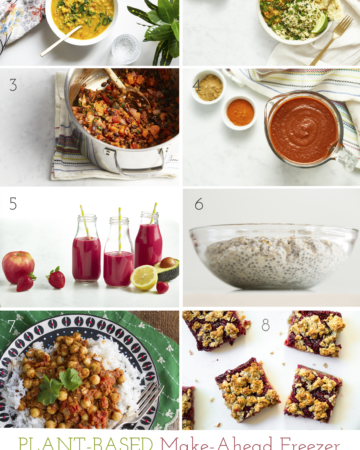
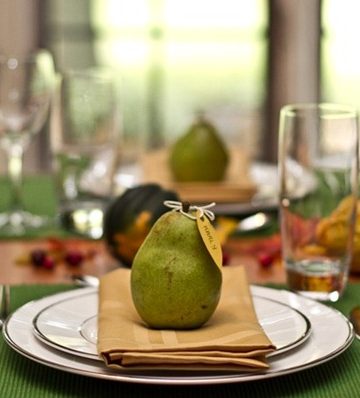
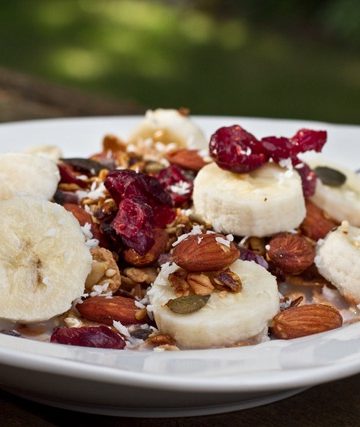
I am currently reading “In Defense of Food” by Michael Pollan and I think you’d find it very interesting! I haven’t gotten very far into it yet, but the shift from humans eating food to eating and obsessing over nutrients has only happened in the last 100 years or so, it’s pretty crazy. Just think, do dogs ask other dogs what to eat? Or debate it constantly? Humans didn’t, either, up until very recent history. That being said, I’ve struggled with ED in the past and restricting myself and putting rules on what I should and shouldn’t eat makes me CRAZY, and certainly makes my diet much, much more unhealthy than if I just eat a little of this and a little of that in moderation.
Pollan’s books are excellent. In Defense of Food and Omnivore’s Dilemma are must reads IMO for people intersted in food, nutrition, sustainable, etc.
I just thought I’d add this into the mix – my acupuncturist has advised me to only eat cooked food as raw is really bad for me. But I’m extremely allergic to just about everything, especially foods containing salicylates and amines. So if anyone is highly sensitive its probably worth thinking about. I definitely feel heaps better since I’ve started avoiding raw foods. Having said that, I dream about eating a lovely crunchy salad!!!!!!!!!!!!!!!!!
Thank you so much for the great info! I did not know that about boiling veggies…very interesting!
I really admire how you always try to achieve balance in your life, whether it’s in diet or exercise. I think anything taken to the extreme (i.e. 100% raw) can make life very stressful. You always help to remind me that life is about balance and our quality of life is not just about diet and exercise, it’s also about our state of mind. Healthy minds contribute to healthy bodies and stressing over trying to achieve the “perfect diet” for optimal health is somewhat counterproductive- seeing as stress is a big contributer to disease, etc… Thanks for always putting things into perspective and making a perfectionist like myself step back and take a breath :)
fabulous post! thanks for doing this.. very sensible and refreshing after reading a lot of unreliable info passed around among people on the internet!
LOVE LOVE this post!
there is one thing i would like to add about uncooked spinach and it inhibiting the absorption of calcium. If you eat something with vitamin C, it will break down the barrier. So adding orange or strawberry slices to your spinach salad would benefit you greatly!
I tried a green monster the other day after working out and it was sooo A-MAZING! I have had one every day since. They are the perfect post-workout fuel.
Mine was pretty basic: Spinach, Almond Milk, Flax, Frozen Banana.
What are some other combos you enjoy??
Great post Angela. Thanks for all the info – you really put some research into this, and you’re right, there is no perfect diet for everyone.
I try to do mix of raw and cooked veggies. However, I will always be a bigger fan of the cooked stuff. I could eat my weight in steamed broccoli, but can’t stand it raw. Blech.
Interesting topic! I am increasing how much raw food I eat because it makes me feel better and the recipes are very tasty too. Having said that I think it’s a long process and you do as you feel each and every day, building and growing year after year. I like to try different foods whilst traveling, so that would put me out of the 100% raw camp, but if the majority of my diet is raw vegetables, I feel that I’d have the right balance ~ for me :)